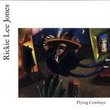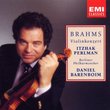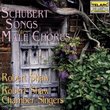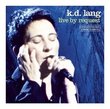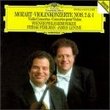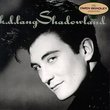| All Artists: George Frideric Handel, Philharmonia Baroque Orchestra, Nicholas McGegan, Guy de Mey, Lisa Saffer, Patricia Spence, David Thomas, Brian Asawa Title: Handel - Judas Maccabaeus / de May, Saffer, Spence, Thomas, Asawa, Philharmonia Baroque Orch., McGegan Members Wishing: 0 Total Copies: 0 Label: Harmonia Mundi Fr. Release Date: 4/16/1995 Album Type: Import Genre: Classical Styles: Opera & Classical Vocal, Historical Periods, Baroque (c.1600-1750) Number of Discs: 2 SwapaCD Credits: 2 UPC: 093046707729 |
Search - George Frideric Handel, Philharmonia Baroque Orchestra, Nicholas McGegan :: Handel - Judas Maccabaeus / de May, Saffer, Spence, Thomas, Asawa, Philharmonia Baroque Orch., McGegan
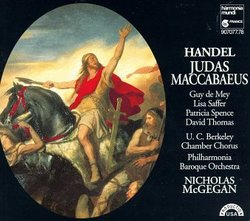 | George Frideric Handel, Philharmonia Baroque Orchestra, Nicholas McGegan Handel - Judas Maccabaeus / de May, Saffer, Spence, Thomas, Asawa, Philharmonia Baroque Orch., McGegan Genre: Classical
|
Larger Image |
CD DetailsSimilarly Requested CDs
|
CD ReviewsBest of the Best robert m. ingold | okemos, mi United States | 04/19/2001 (5 out of 5 stars) "On rare and treasured occasions a collector of classical recordings will stumble across a performance so close to perfect that the the sensation felt may be something like that of a prospector finding an unexpected vein of gold. For me, hearing this recording for the first time was just such an event. Were it not for the fact that the Messiah has been given near sacred status in the musical canon, it would be tempting to argue that Judas Maccabaeus is Handel's finest oratorio. Whether or not this evaluation is accepted, the work is without doubt one of the greatest of all baroque masterpieces and McGegan and his ensemble give it the masterful treatment it deserves.When David Thomas as Simon exclaims "The Lord worketh wonders," the presence of the Old Testament God seems manifest. When Guy De Mey as Judas commands "Sound an alarm," you may have a visceral desire to grab sword and shield and head off to battle. Patricia Spence has one the strongest, most dramatic mezzo deliveries I have heard and Lisa Saffer sings with such elegant beauty that her performance alone would be worth the price of the entire recording.Both orchestra and chorus deliver their parts with a dramatic force appropriate to the work, but never become overwrought and never loose sight of the many fine subtlties in this score. Special praise goes to McGegan for avoiding a problem which often plagues Handel recordings. Never once does the orchestra threaten to smother the soloists.Not only is this the finest Handel recording I have ever heard, it is the best I ever expect to experience." There Might Be Reasons for Doubts... Giordano Bruno | Wherever I am, I am. | 09/17/2009 (5 out of 5 stars) "
... about this performance. Philharmonia Baroque Orchestra has a less-than-consistent history of recordings, ranging from excellent to "okay but...". And there's a choir. Murky, whooshy choral performances by largely amateur university choirs have spoiled scores of scores on CDs, including the awful efforts of The Choir of New College Oxford on the otherwise plausible recording of Judas by The Kings Consort. This time, however, it's the choir that steals the show; the UC Berkeley Chamber Chorus is magnificent. It was coached, in 1993 when this recording was made, by John Butt, who has gone on to a career of superb performances of Bach and Handel. The conductor was Nick McGegan, who seems to have a special affinity for Handel. Under his baton, both the orchestra and the choir surpass themselves. Handel wrote this massive oratorio 'on speculation' - that is, in anticipation of a 'government' victory over the invading Jacobite forces of The Young Pretender in 1745. That victory was not achieved until the Battle of Culloden in 1746, the last-ever military engagement on British soil. Handel was never blind to commercial opportunity; this and other concert pieces he promoted during the war years were intended to stimulate patriotic fervor of the sort that would sell tickets. Judas Maccabaeus is above all a celebratory 'John Bull' oratorio, replete with martial trumpets and pyrotechnic percussion. It's Handel at his most English both in language and in musical affect. In fact, a listening comparison of Judas Maccabaeus with any of the young Handel's Italian cantatas would reveal how completely assimilated the Saxon became to his adopted lands, first to Rome and then to London. The historical Judas Maccabaeus was the 'resistance' fighting hero against the Syrian occupation of Judea in 168 BCE, still celebrated as The Feast of Lights. The libretto for Handel's oratorio was explicitly dedicated to the Duke of Cumberland, and the premiere performance wasn't offered until 1747, after Culloden. The music is as 'public' and festive as any of Beethoven's later heroic overtures, yet it's full of musical subtleties and passages of virtuosic vocal display. Judas is sung on this recording by tenor Guy de Mey, whose voice is aptly heroic and whose vocal technique is fully capable of the extended sixteenth-not flourishes of the role. But as I said above, this music is "all about the choir." Forty-seven singers are listed in the UC Chamber Chorus roster. Ordinarily that would amount to an acoustic disaster, but this choir was superbly rehearsed and disciplined. Their tuning is top-notch. Their attacks and releases are precise. Their diction is so clear that one can almost understand most of the words, a rare treat in choral performances of the English language. In fact, their diction is so clear that one can identify their dialect of English; it's pure Californian! (British listeners! Don't be snobbish! 20th C Queen's dialect is no closer to 18th C Hanoverian English than Berkeley is to London.) It helped, one supposes, that the recording was made in the very high-tech sound studio of the George Lucas film industry. Interested parties, please note:This two-CD has been re-released at a bargain price." |

 Track Listings (34) - Disc #1
Track Listings (34) - Disc #1
